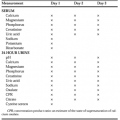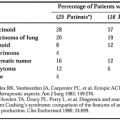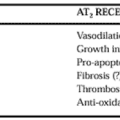TREATMENT CONSIDERATIONS FOR THYROID HORMONE RESISTANCE
The diagnosis of generalized resistance or selective pituitary resistance to thyroid hormone does have a bearing on treatment. For the patient with generalized resistance who is clinically euthyroid, antithyroid medications, thyroidectomy, and radioiodine treatment are to be strictly avoided.2 In generalized resistance to thyroid hormone, the patient’s own hypothalamic–pituitary–thyroid axis is allowed to render the appropriate level of thyroid hormone. However, in cases of concomitant primary hypothyroidism with elevation in serum TSH, the patient should be treated with thyroid hormone. Patients with generalized resistance who have been inappropriately treated with radioiodine or thyroidectomy may have striking elevations in TSH; for poorly understood reasons, in these patients completely normalizing the serum TSH level and avoiding signs and symptoms of thyrotoxicosis with T4 may be difficult.
A minority of adolescents with generalized resistance demonstrate significant bone resistance and subnormal growth.32 The suggestion has been made that exogenous T4 or T3 may augment growth.2,32 For patients receiving thyroid hormone, it should be administered cautiously, with special attention given to cardiac and neurologic status.
The treatment of selective pituitary resistance to thyroid hormone is somewhat controversial. This condition must be differentiated from a TSH-secreting adenoma, because the treatment of the latter is surgical.33,34 Radiologic visualization by magnetic resonance imaging or computed tomographic scan is primarily used in the diagnosis. The molar ratio of α-subunit to TSH is often elevated in patients with TSH-secreting adenoma.33,34 Therapy for pituitary resistance has included β-blockers such as propranolol, bromocriptine, methimazole, or propylthiouracil, 3,5,3′-triiodo-thyroacetic acid (i.e., TRIAC), somatostatin, and thyroidectomy.2,3,34,35,36 and 36a Many cases are mild, and no intervention other than observation is required, because the level of symptomatic thyrotoxicosis can abate with time.3 One severely thyrotoxic patient has been successfully treated for several years with methimazole.36
Stay updated, free articles. Join our Telegram channel

Full access? Get Clinical Tree






